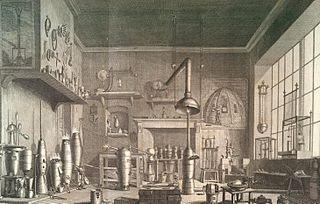Related Research Articles

John Lowther, 1st Viscount Lonsdale, PC,, known as Sir John Lowther, 2nd Baronet, from 1675 to 1696, was an English politician.
Manuel John Johnson, FRS was a British astronomer.

Admiral Sir Astley Cooper Key, was a Royal Navy officer. As a junior officer he saw action at the Battle of Vuelta de Obligado in November 1845 during the Anglo-French blockade of the Río de la Plata and took part at the Battle of Bomarsund in August 1854 and the Bombardment of Sveaborg in August 1855 during the Crimean War. He also went ashore with the naval brigade to take part in the Battle of Canton in December 1857 during the Second Opium War. He later commanded a specially-formed Baltic Fleet created in February 1878 to intimidate Russia from entering Constantinople during the closing stages of the Russo-Turkish War. He became First Naval Lord in August 1879 in which role he was primarily interested in administration and technology rather than strategy: he kept the cost of running the Navy within budgets, sanctioned the construction of six Admiral class battleships and ensured the Navy was properly prepared for the Panjdeh Incident in 1885 when Russian forces seized Afghan territory at Panjdeh.
John Scandrett Harford, FRS was a British banker, benefactor and abolitionist.
Sir William Menzies Coldstream, CBE was an English realist painter and a long-standing art teacher.

Rev Dr John Cumming DD FRSE was a Scottish clergyman and religious author.

Admiral Sir Hastings Reginald Yelverton, was a Royal Navy officer. As a junior officer he took part in a major action against pirates off Candia in June 1826 and was involved in protecting British interests during the Portuguese Civil War during the early 1830s. He saw action in the Crimean War as Captain of one of the two ships that captured a Russian barque beneath the batteries at Ekenäs in Finland in May 1854. Then in July 1873 he took part in the suppression of the Cantonal Revolution in Cartagena. He became First Naval Lord in September 1876 and in that role implemented a series of economies demanded by the Disraeli ministry but was also involved in ordering the small, cheap and thoroughly unsuccessful ironclad Ajax-class battleships.

Sir Kariamanikkam Srinivasa Krishnan, FRS, was an Indian physicist. He was a co-discoverer of Raman scattering, for which his mentor C. V. Raman was awarded the 1930 Nobel Prize in Physics.
Joseph Jackson Lister FRS was a British zoologist and plant collector from Leytonstone who collected biological specimens during travels in Africa, Asia, Australasia and the Pacific region.
William James Lewis F.R.S. was a Welsh mineralogist.
William Valentine Mayneord, CBE FRS was a British radiologist and pioneer in the field of medical physics.
Andrew Richard Lang FRS CBE was a British scientist and crystallographer.

William Lewis FRS was a British chemist and physician. He is known for his writings related to pharmacy and medicine, and for his research into metals.
James Pickering Kendall FRS FRSE was a British chemist.
Philip Packer FRS was an English barrister and architect. He was a courtier to Charles II, and friend to Christopher Wren.
Francis "Frank" Edgar Jones MBE FRS, was a British physicist who co-developed the Oboe blind bombing system.
Arnulph Henry Reginald Mallock, FRS was a British scientific instrument designer and experimentalist.
Denis Henry Desty FRS was a British scientist and inventor, known primarily for his work in the fields of chromatography and combustion science.
Dr John Frost FRSE FSA (1803–1840) was a short-lived but influential physician and botanist who founded the Medico-Botanical Society of London, studying and cataloguing the medicinal properties of plants. He was a controversial and flamboyant figure of the early 19th century.
References
- The Times (19 Oct 1859)
- Oxford Dictionary of National Biography, Oxford University Press, 2004
- Stephen, Leslie; Lee, Sidney, eds. (1890). . Dictionary of National Biography . 22. London: Smith, Elder & Co.
- The Gentlemans Magazine and Historical Review, 1859